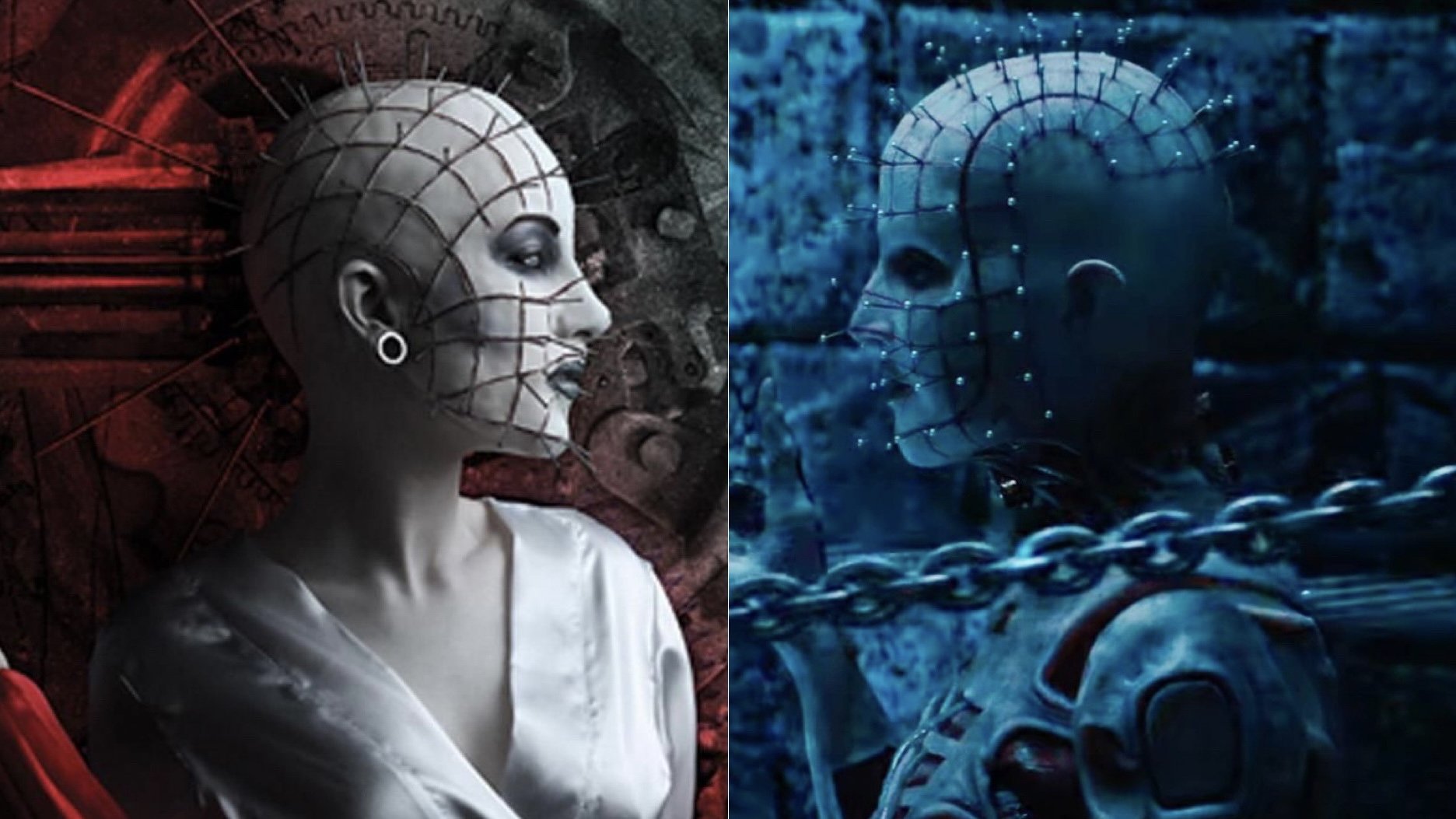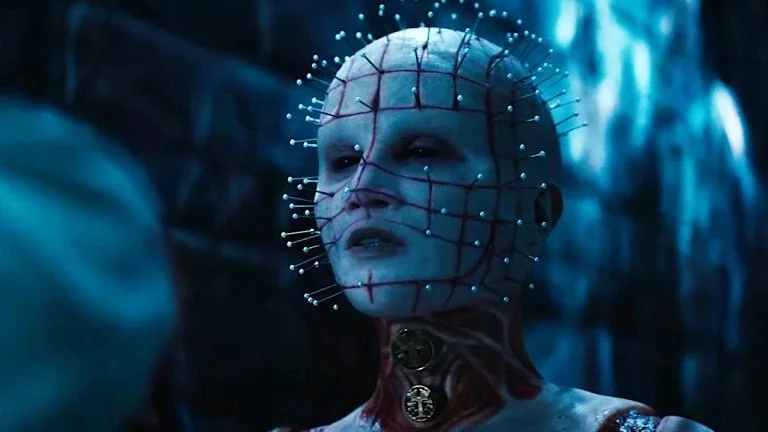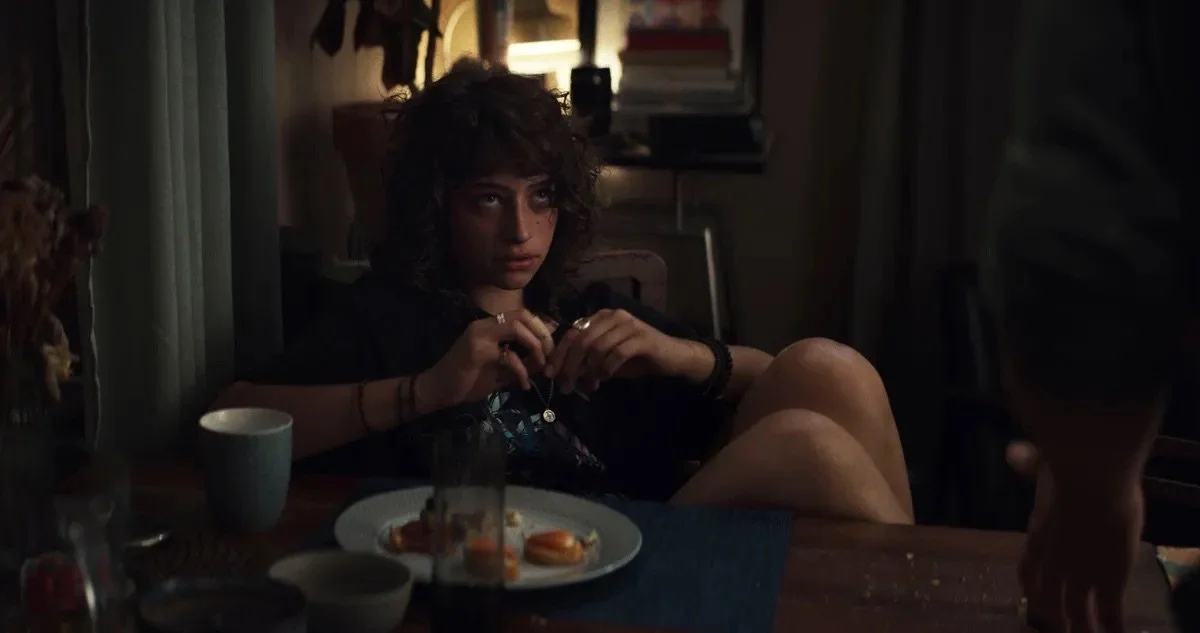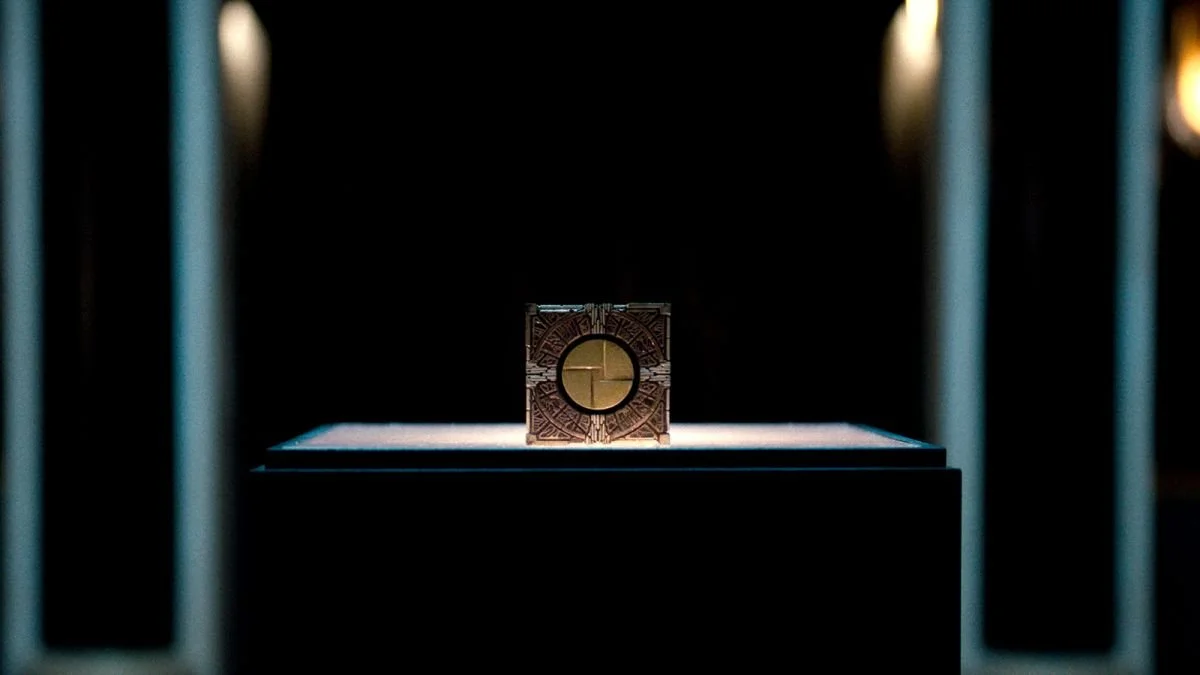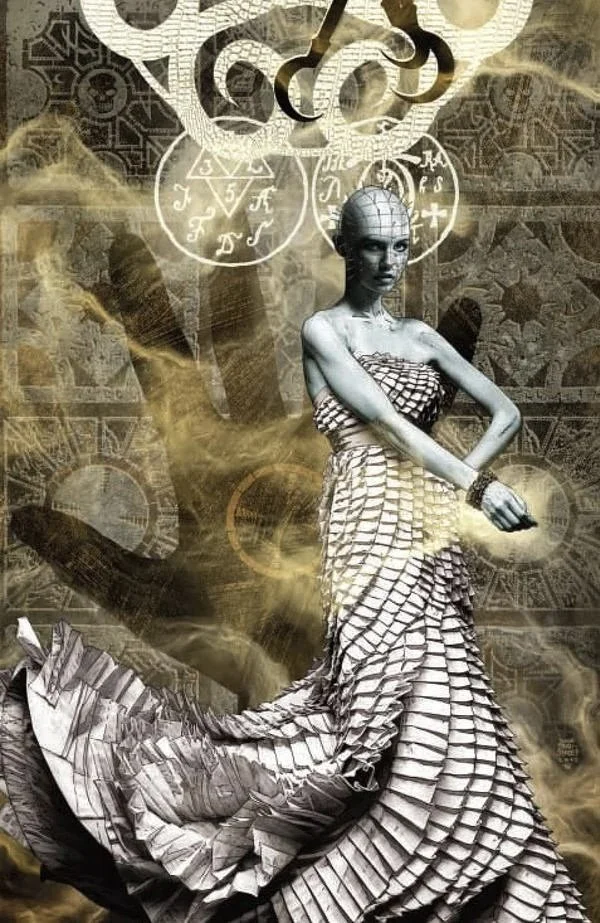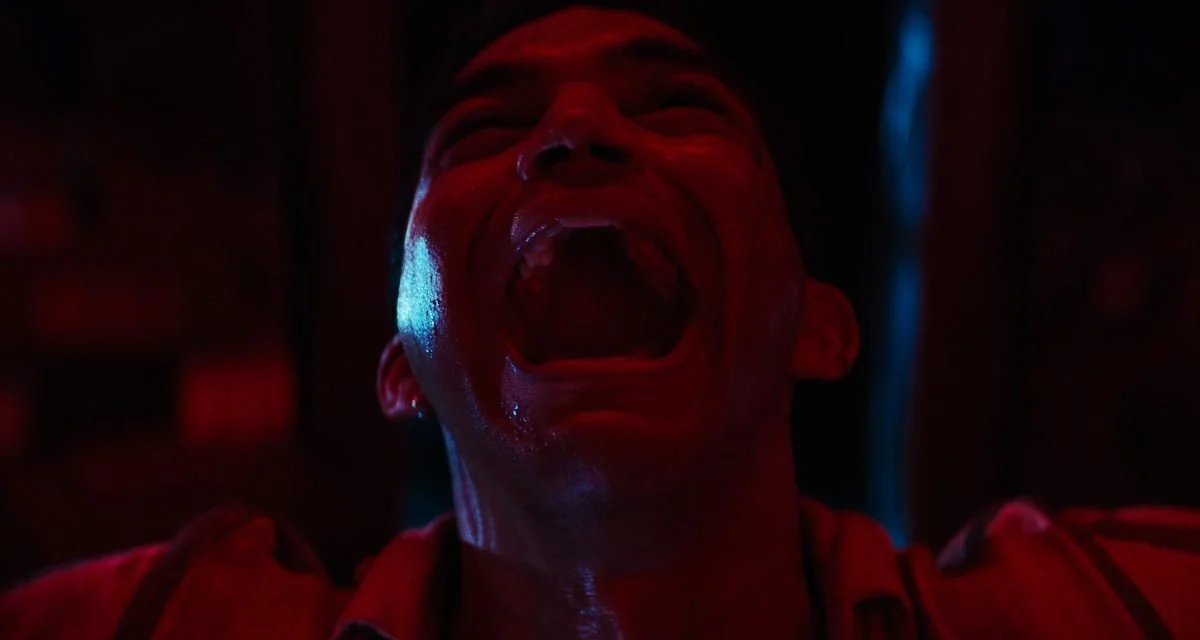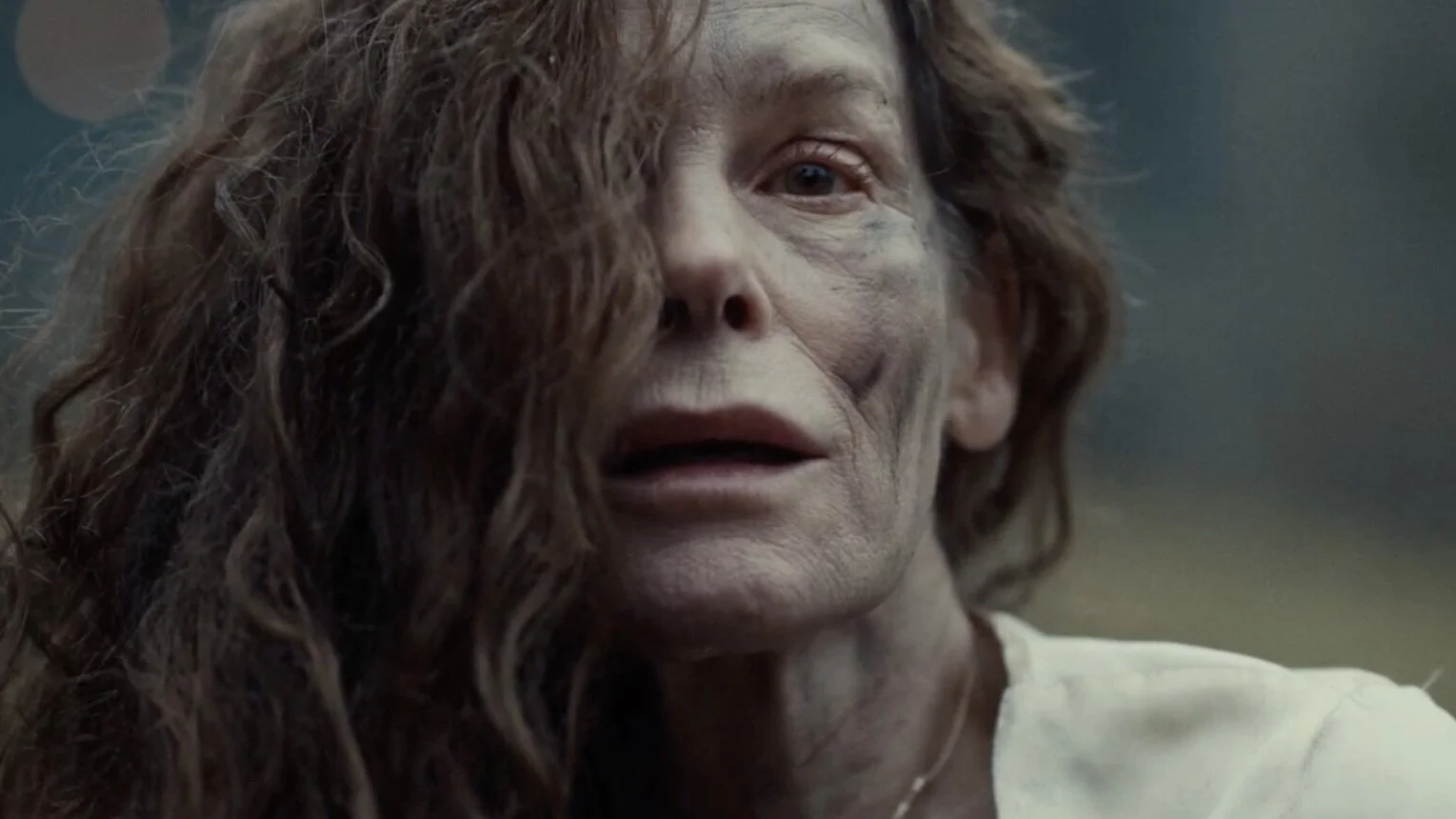Film Review & Hypothesis — "Hellraiser"
Ever since the announcement that Jamie Clayton would be our new Pinhead in David Bruckner’s reconfiguration of Clive Barker’s masterpiece, horror fans have been very keen on defending the casting choice by referencing an oft-cited line from The Hellbound Heart, the novella that serves as the impetus for Hellraiser media, which describes the character as androgynous with a feminine voice. That’s all good and true, but when I read the news I got excited for wholly different reasons. We will need at least one more installment to determine if my gut reaction was right, but I suspect that Clayton’s Pinhead is not meant to be the same extra-dimensional being played by Doug Bradley in the original film.
I have a hunch that Jamie Clayton is Doug Bradley’s successor in more ways than one…
David Bruckner’s Hellraiser has an altogether different vibe than Clive Barker’s 1987 adaptation of his own book. Stripped down, Hellraiser is a twisted love story about how far we will go—and how much blood we will spill—for ultimate sexual fulfillment (or, at least the prospect of it). Written and produced during the Reagan-Thatcher years, Barker tapped into the clear and present fear that queer culture engendered, in large part, due to the AIDS epidemic. Using an aesthetic associated with gay leather bars and S&M play, Barker successfully captured a form of subversion previously unharnessed in cinema; it’s about as far from “conservative” as a horror film could get.
But it’s not 1987 anymore. These things don’t quite phase modern audiences in the same manner. We, the people of 2022, are fucked up on entirely different terms. Thus, Bruckner’s film rightly goes in a new direction.
It’s no secret that The Night House, Bruckner’s previous film (also written by Ben Collins and Luke Piotrowski), was heavily influenced by Hellraiser. Looking back, it’s no wonder The Night House has become one of my favorite horror films in recent memory. Bruckner & Co. know how to build intrigue, how to withhold, how to tantalize. We don’t see Pinhead or the other Cenobites at all in the gruesome cold open—and it’s scarier because of it. The hooks and the screams more than suffice.
When we do eventually see the Cenobites, it’s safe to argue that we don’t really see them so much as glimpse them. This new batch of Cenobites have ditched the black leather (remember, it’s no longer 1987) and have opted to adorn themselves through mutilation instead, using their own flesh and sinew to generate terror-inducing appearances. Some of the designs harken back to the original film, but some are fresh creations. Unfortunately, most of the Cenobites tend to be under-lit, probably so as to literally shroud them in darkness and mystique, but the downside is… we can’t fucking see the cool costumes half the time!
Thankfully, more attention is paid to Jamie Clayton’s Pinhead, a.k.a. the Lead Cenobite, a.k.a. the Hell Priest. Deservedly so, because Clayton delivers an elegant and fiendish performance for a new generation. Few horror icons command attention quite like Pinhead. The character is visually striking, of course, but what makes a Hell Priest so magnanimous has a lot to do with personality, too. Given that Pinhead’s guise is so maximalist, Clayton sagely finds power in a menacing, probing slyness.
Doug Bradley’s earlier portrayal, by comparison, is pretty brash. Although Bradley’s Pinhead speaks of corporeal pleasures while being decked out in fetish gear-inspired garb, his vibe is something akin to a sadistic friar from a netherworld. His approach, albeit a diversion from the source material, works for that adaptation, because Hellraiser 1987 is horny as hell. Hellraiser 2022 has sex, but it’s not a driving factor here; something else tempts our heroine. The downplayed promiscuity of 2022 elevates Clayton’s more sensual approach.
Clayton’s Pinhead is a seductress. Her depravity slithers into the bloodstream and corrupts quietly. There’s an almost intimate curiosity to her, as if she’s genuinely interested in whom she’s dealing with. Her fascination with her subjects never crosses into commiseration, but she executes her business negotiations as someone who may recall being on the other side of the bargaining table… as someone who may have made a deal with god-like being to get where she is now… as someone who may have only recently become immortal…
I have a suspicion that Jamie Clayton’s Pinhead is actually Kirsty Cotton, survivor of Hellraiser 1987, ascended to the rank of Hell Priestess.
In 2011, Clive Barker co-wrote and oversaw a continuation of the Hellraiser saga in comic form. In this short series, Pinhead has grown disinterested with his studies of the flesh and decides he wants return to his life as a mortal. So, he schemes a way to escape his unfulfilling existence and replace himself with a worthy successor—the only person to have ever gotten the better him and his Cenobites: Kirsty Cotton. In the two decades since she bested him, Kirsty has led a group dedicated to overthrowing the dark deity the Hell Priest serves. To woo her into the position, Pinhead promises Kirsty that she would be the absolute Pontifex of Hell, free to rule any way she pleases.
She accepts, with the intention of destroying the Hell dimension from within. But, naturally, things do not go according to plan.
If Clayton’s Pinhead is Kirsty Cotton, now perverted by the bewitching powers of Hell or perhaps carrying out her “duties” with ulterior motives, I do not expect any future film entries to be close renditions of the comics, in terms of plot or character arcs. Even Hellraiser 1987 isn’t a 1:1 adaptation of The Hellbound Heart. Clive Barker adjusted his vision of Pinhead when Doug Bradley’s interpretation entered the picture, and I would expect David Bruckner to do the same with Jamie Clayton. The events of the comics would merely be a launch pad, probably, if I’m even onto something.
But, nevertheless, I would in fact like to see it. After all, this is the reason I got excited when I read about Jamie Clayton being cast.
Plus, Clayton’s Pinhead being a separate Hell Priest would allow Doug Bradley to reprise his role—and not via a tacky cameo. He could truly continue the journey of his character, now once again the Victorian era-born Captain Elliott Spencer of the British Expeditionary Force, living in modern times as a mortal man. Maybe he gets pulled back into the fold somehow, or maybe he never really left. It’s very open-ended at this point.
Whatever Bruckner and Barker, who is involved, have in store, I’ll be there. Should they get to do a sequel to Hellraiser 2022, I’m sure they will, at the very least, choose to explore the mythology. One of my favorite aspects of the new film is how we know damn well that the scope of this inter-dimensional setting is massive. Bruckner confirms that there is more to this world than we know and simply keeps moving. We don’t need that stuff now, not yet. And it would have just made the movie longer.
The runtime is somewhat on the lengthy side, as far as most horror films go, but I’m more forgiving of it than some of my peers, it would seem. I fully recognize that two hours—the length of a standard movie (but regardless)—is too long for certain viewers, but I savored every minute. There’s a lot going on in this movie that I like. In addition to the mythological aspects, we have an incisive repurposing of the previous film’s musings on desire and compulsion as well as a great deal of spectacle: the aforementioned Cenobite makeover, the glances into their realm, and then there’s the labyrinthine mansion that serves as a locale for nearly half the movie. What a home of horrors, indeed!
Obviously, more evidence is needed in order to prove my hypothesis, so Hulu damn well better grant Bruckner & Co. the means to make more movies. But even if I’m mistaken, and this is all just wishful dot-connecting on my part, I’ll be 100% content watching Jamie Clayton tear souls apart as our new Pinhead.
